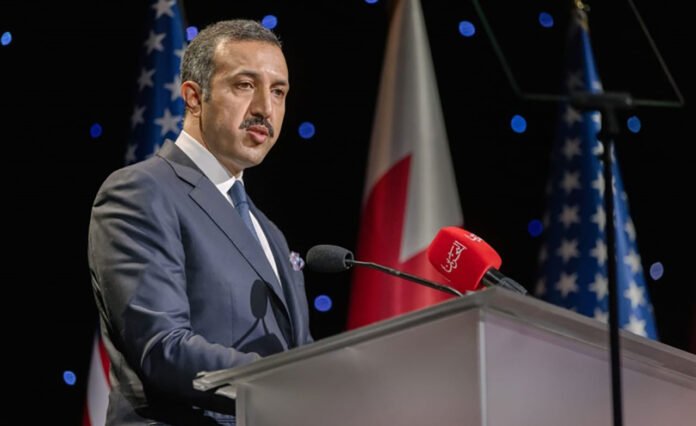Bahrain continues to strengthen its position as a leading voice for global peace efforts, demonstrating remarkable commitment to fostering international harmony. The kingdom’s Foreign Affairs Minister recently showcased Bahrain’s diplomatic accomplishments during celebrations marking the United Nations’ International Day for Dialogue Among Civilizations.
The small but influential Gulf nation has made global peace efforts a cornerstone of its foreign policy. Through innovative programs and strategic partnerships, Bahrain promotes understanding across religions and cultures. The National Human Rights Committee plays a pivotal role in these initiatives, working closely with international organizations to implement sustainable development goals.
Notably, Bahrain achieved a significant diplomatic victory by securing a non-permanent seat on the UN Security Council for 2026-2027. This accomplishment, supported by 99.5% of UN member states, reflects worldwide confidence in Bahrain’s global peace efforts and conflict resolution capabilities. The kingdom successfully proposed establishing an International Day of Peaceful Coexistence, further cementing its peacebuilding credentials.
Bahrain’s progressive policies include the groundbreaking Declaration on Freedom of Religion and Belief. Educational institutions like the King Hamad Global Centre for Coexistence train young leaders to become ambassadors of tolerance. These programs also nemphasize intercultural communication and conflict prevention strategies that resonate globally.
The kingdom’s recent Arab Summit introduced several humanitarian measures benefiting conflict zones. These include comprehensive healthcare initiatives and educational support for communities affected by war. Bahrain also proposed hosting a Middle East peace conference to address regional tensions through dialogue rather than confrontation.
Technology plays an increasing role in Bahrain’s peace initiatives. The government has launched digital platforms facilitating interfaith discussions among youth worldwide. Virtual exchange programs connect students from different cultures, breaking down barriers through shared learning experiences.
Economic development complements these diplomatic efforts. Bahrain invests in projects that create jobs in post-conflict areas while promoting women’s empowerment. The kingdom’s microfinance programs help rebuild communities torn by violence.
Looking ahead, Bahrain plans to expand its peace education curriculum in schools across the Middle East. The government will also host an international conference on religious tolerance next year, expecting participation from over 100 countries.
Overall, through these multifaceted approaches, Bahrain demonstrates how determined leadership can make a substantial impact on world affairs. The kingdom’s commitment to dialogue over division offers a model for other nations seeking to reduce global tensions. As Bahrain prepares for its UN Security Council term, the international community anticipates fresh perspectives on resolving longstanding conflicts.


